The same mission for a Church on the move: Learnings from the COMIBAM 2025 congress
A report from the Ibero-American Missionary Cooperation Congress (COMIBAM), which gathered over 1,600 evangelicals from 25 countries in Panama City.
PANAMA CITY · 20 MAY 2025 · 13:00 CET
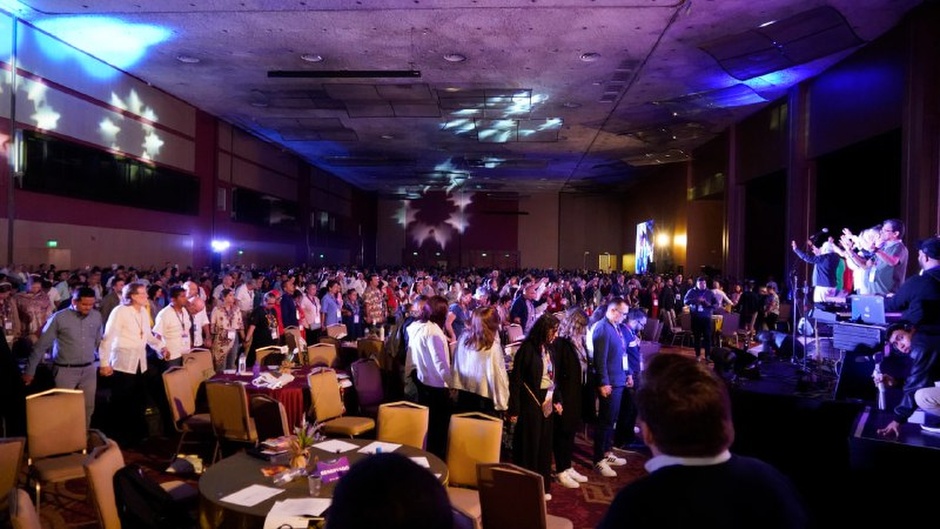
A cry that crosses borders
The capital of Panama hosted, from April 22 to 25, 2025, the 5th edition of the Ibero-American Missionary Cooperation Congress (COMIBAM).
With the theme The same mission for a Church on the move, the congress gathered around 1,600 people from 25 countries and various evangelical Christian organizations.
Among leaders, theologians, pastors, missionaries, and intercessors, one truth stood out: the Great Commission, "Go into all the world", remains a timely, urgent, and global calling.
Throughout the four days, participants were not merely informed about statistics and strategies. They were deeply confronted with the spiritual reality of a transforming world, where the center of the Christian faith is shifting to the Global South, and where Muslims and other peoples once considered unreachable are increasingly encountering Jesus in a personal way.
Brothers and sisters from different parts of the world blessed participants with their testimonies of how Jesus continues to build His church, even in the midst of persecution and hardship.
Zaza Lima, Andres Duncan, Carlos Madrigal, Afeef Alasah, and many others were present, as well as dozens of missionary organizations committed to equipping, sending, and training missionaries, including Crux Institute, Perspectives, Interserve, Pioneers, Frontiers, and more.
They also had access to a prayer space with dozens of references to unreached ethnic groups and peoples, for whom we were invited to intercede. There were countless testimonies of Christians surprised by encounters with people from the very groups they had been praying for.

The courage of Uriah and the omission of David
The image of Uriah the Hittite, faithful unto death, comes to mind as a symbol of one of the most insidious dangers of our time: spiritual comfort. Uriah was at the front lines of battle, even though he was not an Israelite by birth. David, the anointed king, stayed home, resting in his palace—and it was in that comfort that he fell.
This comparison especially resonated with me as I reflected on European and Western contexts, where the evangelical church faces not only secularization but also the constant temptation of complacency.
How many of us today live like David, sheltered in churches, secure structures like palaces, debating doctrines, discussing political and ecclesiastical positions, while the true heroes of faith, like Uriah, are alone on the front lines, in contexts of persecution, migration, and poverty, faithfully living out their missionary calling?
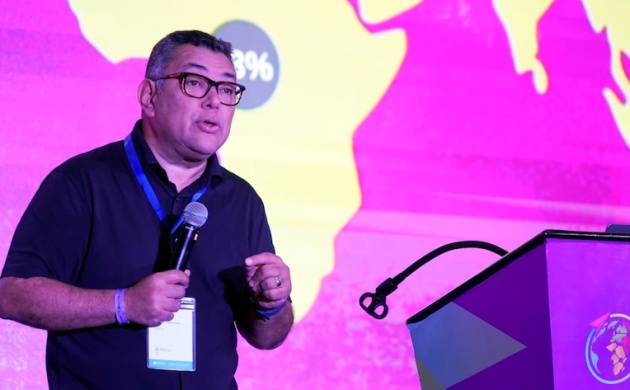
Unreached peoples: Between bridges and walls
One of the central themes of COMIBAM 2025 was the growing number of Muslims coming to Christ. Since the year 2000, more Muslims have converted to Christianity than in all previous centuries combined. This phenomenon was addressed with depth and respect, not triumphalism, but hope.
Beyond plenary sessions, participants had the opportunity to choose from workshops and strategic working groups that helped them better understand the context we live in and prepare ourselves for mission.
Topics included polycentric mission, support for immigrants and refugees, indigenous communities, diasporas, sports and arts as mission fields and tools, non-Christian religions, urbanization, and more.
This historical, sociological, and theological understanding is essential to dissolve misunderstandings and build bridges. Instead of aggressive apologetic approaches, we are called to an attitude of listening, compassion, and incarnation.
It was deeply moving to hear how many Muslims are having dreams and visions of Jesus. Some recognize His voice even before they know who He is.
When they discover that the words which comforted them are the teachings of the Christ of the Gospels, something shifts. From that point on, when they hear His words, they feel their soul has found home.
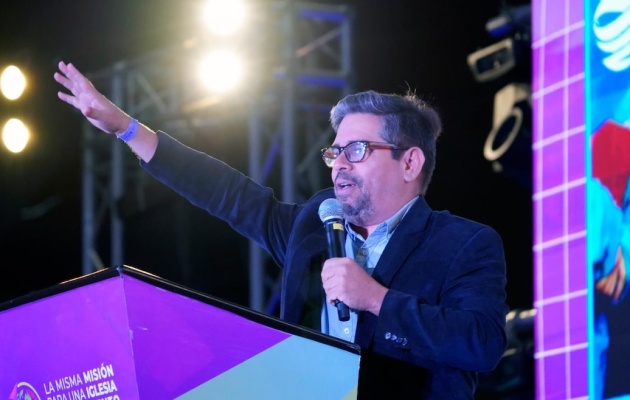
Hospitality as a key to mission
One of the most recurring theological concepts at the congress was philoxenia, the love for the foreigner. Biblical hospitality is not charity. It is reconciliation. It is prophetic.
The Christians of the first century transformed the Roman Empire not with the sword, but with hospitality. And today, the Holy Spirit seems to whisper once again to the Church: "Open your table. Listen before you speak. Walk alongside".
Migrants from non-Christian religions in Europe are not more accessible just because they crossed national borders. Many obstacles remain. However, authentic Christian hospitality, without manipulative intent, has been a doorway to faith. A phrase echoed again and again: "The Gospel first arrives through the table, then through the pulpit."
This presents a great challenge to evangelical churches in Europe, especially in post-colonial contexts like Portugal or Spain. Opening space to the other, to the different, is more than an act of tolerance—it is an act of faith.
When we open our homes and churches to those who do not believe as we do, we are participating in the mission of the Triune God, who welcomes, listens, and reveals Himself along the way.
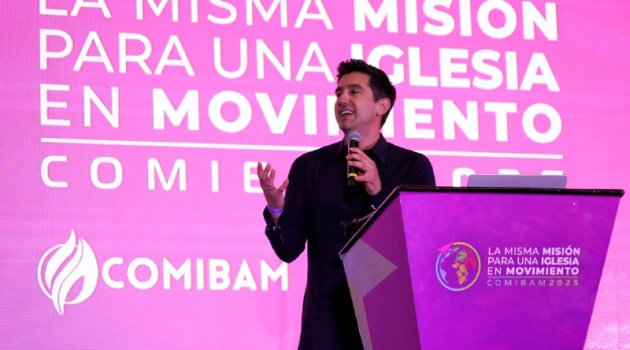
Walking with God
Three-quarters of Luke's Gospel takes place on the road. Jesus heals on the road, teaches on the road, calls on the road. Mission is not an event, but a lifestyle on the move. A spirituality rooted in discipleship, not merely institutional belonging.
In my sociological research, I have studied how evangelical churches offer emerging spaces of sociability for those who feel excluded by the accelerated society (as Hartmut Rosa describes) and modern individualism.
This kind of community is also what many non-European migrants seek: a place of belonging, meaning, and connection.
The challenge posed by COMIBAM 2025 is clear: mission is now. And it is here. It is no longer only “to the ends of the Earth” but also in the building next door, in our children’s school, on the street we walk every day. If we do not go, we lose step and rhythm with God.
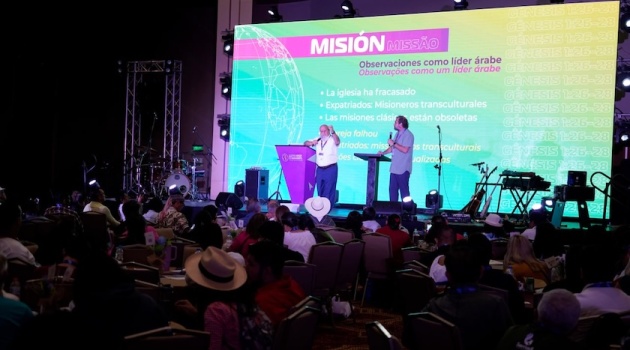
Conclusion: Rise, see, and act
There is a move of God happening in regions we once saw as "difficult." The Holy Spirit is not hindered by geopolitics, doctrines, or historical trauma. He continues to blow wherever He wills.
It is up to us to discern the times, tune our ears, and rise as a Church to walk with the God who moves. May our theology not be an alibi for paralysis. May our orthodoxy not prevent us from loving concretely.
And may our faithfulness be like Uriah’s, loyal to the end, even if no one sees, even if no one applauds us. For true recognition comes from God, the Lord of the mission.
Join us to make EF sustainable
Learn all about our #TogetherInThisMission initiative here (English).
Published in: Evangelical Focus - world - The same mission for a Church on the move: Learnings from the COMIBAM 2025 congress
